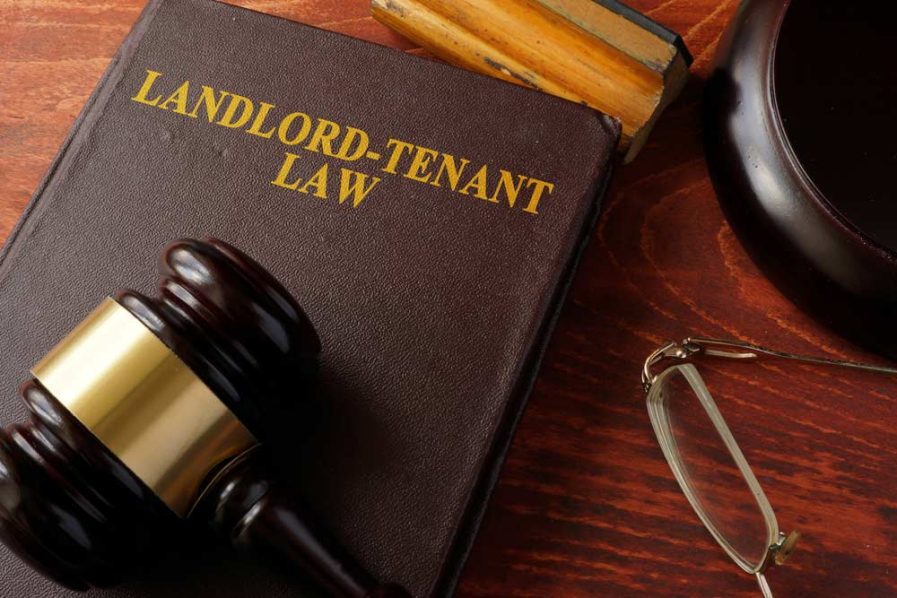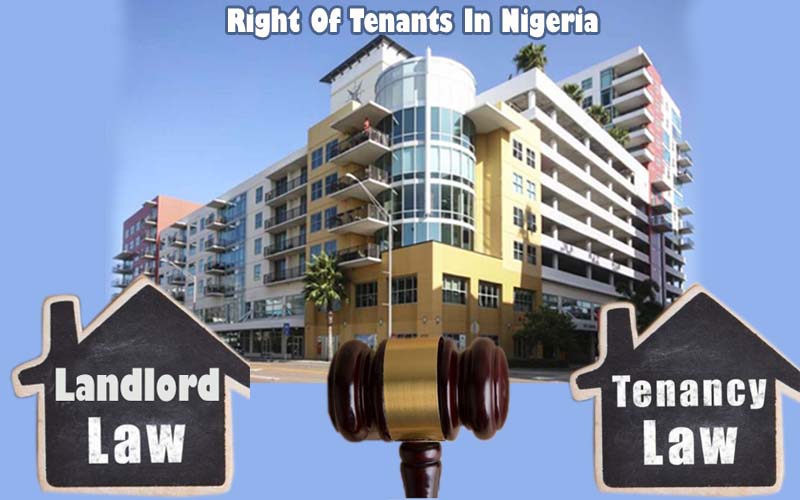What Is Abuja Nigeria Landlord And Tenant Rights?
goldandlandsadmin October 28, 2022 No Comments

Can you imagine signing a contract that includes being barred from getting access to your home when it is 11:00 pm, you are depriving access to come home or go out of the compound?
Or that you can be kicked out time quickly from the rented residential apartment, anytime you default to pay on time? Or your rent can be increased anytime without the property owner following due process, only to notify you of the new rent fee when you intend to renew your yearly rent?
Tenancy agreements in Nigeria can be long and complicated, especially if you’re unfamiliar with the legal system. However, they don’t need to be for you.
Do you know that everything relating to ownership has laws of the does and the don’t! The same goes for you being a tenant to any individual. Most times landlords take laws to their hence because they may deem you don’t know about the Nigeria tenancy agreement law. But when a landlord/property owners know you are aware of these laws, they trade with caution. This could be the reason most landlords don’t like to give their homes to Lawyers and police. This is because these professions are inclined to laws and are a no-go area for ignorant property owners who wouldn’t want to implement legal action in taking the right decision with their tenants.
Some months ago, I came across a post online of someone asking how to evict a stubborn tenant from his property in Port Harcourt Nigeria. According to him, the tenant has been in the house going for 6 months without paying his rent, and the lawyer has taken the tent to court, but it seems the layer is not doing what is expected to forcefully evict the tenant and other tenants in the compound have emulated similar behavior to not pay ahead, but to cause havoc that could involve going to court. Most of the suggestion was not wrong, while some were totally out of consideration and could put even the property owner to serve a jail term.
The question drives down to:
The Nigerian Tenancy Agreement Bill?
The amended occupancy Act of 2007 associate degreeticipated to produce much-needed certainty and clarity on what a tenant will expect from their landowner underneath an agreement. However, on January eighteen, 2022, the Federal Republic of Nigeria’s house of senate move to manage rent in the capital of Nigeria.
A bill that seeks to manage the mode of payment of rent within the Federal Capital Territory (F.C.T) has been introduced in the Senate. The bill titled, “Advanced Rent (Residential flats, workplace areas, etc) Regulation Bill 2022”, was one of the 5 bills read for the first time.
The Kogi legislator, Smart Adeyemi, sponsored the bill. The bill, if passed, would build it a legal offense for any landowner to demand payment of advance rent from tenants.
It seeks to scale back advance payment of rent from one or 2 years by tenants to a few months and ulterior monthly payments.
The bill comes amid complaints by the capital of Nigeria residents of the high price and mode of payment of rent. several residents within the F.C.T have, over time, lamented the problem concerned with obtaining accommodation thanks to the high price, and a few, who do, square measure asked to form associate advance payment of 2 or 3 years.
Accommodation within the town ranges from N1.5 million to N4 million counting on the scale. This has created several choice accommodations in satellite cities like Nyanya, Kubwa, Lugbe, and Kuje, among others.
Although details of the bill haven’t been free, the sponsor same the bill would change tenants to pay a most advance payment of 3 months’ rent, followed by an ulterior monthly payment.
What Is Nigeria Tenancy Agreement?
A Nigerian Tenancy agreement is a common agreement documented by a Lawyer between landlords and tenants. Tenants must adhere to specific guidelines, such as paying rent on time or keeping the property clean while living there for them to continue living in their homes.

A tenancy agreement is a contract between landlords and tenants that outlines their rights and responsibilities concerning each other and the property in question. Tenants are usually required to pay rent on time or following an agreed-upon schedule and are expected to maintain the property in a clean and sanitary condition. Landlords can also require tenants to perform additional services, such as paying utility bills or maintaining landscaping.
The absence of a tenancy agreement in a tenancy relationship does not mean that both Landlord and Tenant have no rights in the tenancy. Landlords and tenants have implied rights.
Rights of a Tenant in Nigeria?
While most residence agreements are simple legal terms, some folks don’t understand them as simple to know… Regardless of how much you paid for rent or what type of building you are renting, your landlord owes you all the rights mentioned below as the law is very clear on these terms. The safest way to avoid being manipulated by landlords is to ensure that you are armed with a lawyer who can assist in reviewing the agreement before they sign it. The rights of a tenant include:
1. Right to Receipt of Payment.
2. Right to habitable premises due to flooding or damages.
3. Right to Privacy.
4. Freedom from any sort of disturbances.
5. Use of certain areas which are common lawfully.
6. The Right to Harmonious Relationships.
7. Right to a Compulsory 7-Day Notice to Recover Possessions.
8. Right to valid Quit Notice:
- A one-year (or above) tenancy will require at least a notice of 6 months
- A landlord must provide a minimum of one month’s notice before ending a tenancy.
- A week’s notice is required for a one-week tenancy and for weekly tenancies after that.
After this, the landlord must give you seven days’ notice to avoid court action. If all these steps are not followed, the landlord will not have the right to take action in court against you.
Rights of a Landlord In Nigeria?
Chamanlawfirm in Abuja Nigeria noted some helpful guides for the right of the landlord in Nigeria. Which would be helpful to most of you reading this article.
Note: Section 43 of the 1999 Constitution provides for the ‘Right to acquire and own immovable property anywhere in Nigeria’. So every Nigerian, no matter the person’s ethnicity, can own, buy, sell, and acquire any property in any part of Nigeria.
1. Right to Renew Tenancy: They have the discretion to renew Tenant’s agreement or not. He has the right to refuse to renew the agreement, especially where he was not comfortable with having the Tenant occupy his property.
2. Right to not issue a Quit Notice: A landlord can refuse to renew a rental agreement, especially if he is uncomfortable with the tenant remaining on his property.
3. Right to Review Rent: They have the right to review the rent in line with the Rent Review Clause and not during an existing tenancy. Although a landlord can check his rent, he cannot do much during an existing tenancy and demand his tenants to pay up the difference. A rent review must be for a recent tenant and not for a subsisting tenancy.
4. Right against Compulsory Acquisition of Property: Section 44 of the Constitution provides for the right against compulsory acquisition of property. Section 28 of the Land Use Act provided that the Government can only compulsorily acquire land for the overriding public interest.
5. Right to Compensation from Compulsory Acquisition: The government can compulsorily acquire property for public purposes. The Landlord has the right to be compensated for any damage done to the property.
6. Right not to reimburse a Tenant: Where a Tenant carries out repairs on the property, the Landlord has the right not to reimburse the Tenant. They are also mandated to reimburse the Tenant only where the repair is covered in their agreement.
Read Also: 10 Ways To Avoid Abuja Properties Scam?
In conclusion
A conflict is commonplace in Landlord-Tenant endeavors. Unfortunately, these conflicts are needless and totally avoidable if only people will learn to do the needful and take the right step ab-initio… All that needs to be done is to locate the position of the law and hang on to it. If every party acts within the ambit of the law, there will be fewer crises to contend with. Resources dissipated on needless litigations and conflict-related measures can be saved and subsequently divested into other better economic endeavors.



